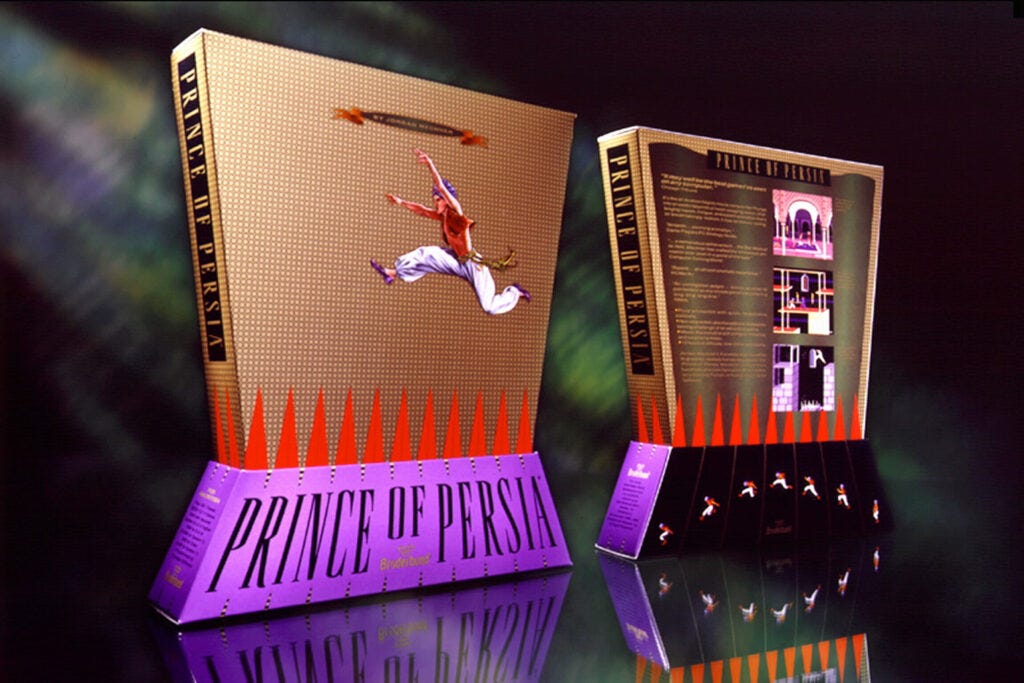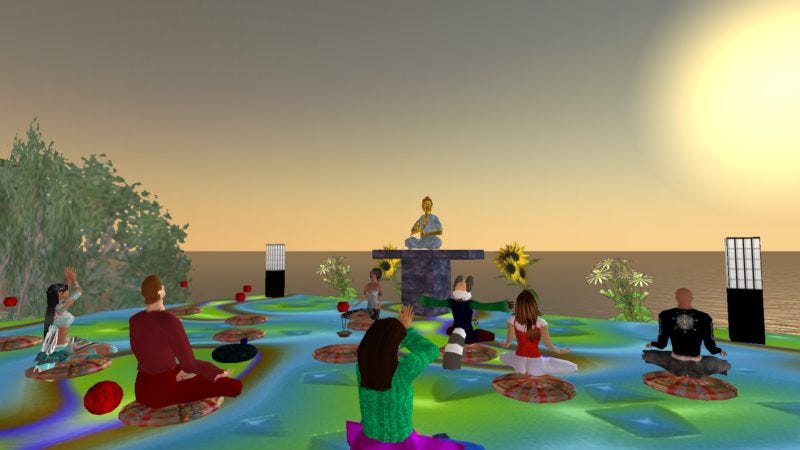Transmission #38: Corporate Bhuddism, Trapezoidal Boxes, In Praise of Fun and Subterranean Cities
Design, ideas and other flotsam
Hello. Welcome.
This is Transmissions by me, Marty Brown.
What is Transmissions? It’s an ongoing, (usually) fortnightly newsletter that collates some of the more interesting stories, links, quotes and other curios that float my way.
If you’re new here, then sign up now to get more of these in your inbox, and don’t forget to tell your friends!
Design
The incredible boxes of Hock Wah Yeo
Phil Salvador, The Obscuritory
There is a time when an industry senses a kind of wild momentum that it is the future and that anything is possible. Though the crypto/NFT wave has definitely broken is currently receding, for a while there was a palpable, wild-eyed optimism, where along with business models, complicated financial schemes, outright scams, and everything in between, the aesthetics of a new future were being brewed up.
A similar thing happened to computer games in the early 90’s.
In the early years before the industry was standardized, computer game packaging ran the gamut from loose floppy disks in Ziploc bags2 to big, intimidating boxes as thick as a dictionary. But why stop there? How about something even weirder or wilder? If there were no rules, why did you have to sell games in a rectangular box at all?
And so stepped in Hock Wah Yeo, a Californian packaging designer, who for a brief moment, turned conventions on their head and answered that questions with a resolute no.
And then, sadly, we all decided to go back to rectangular boxes anyway.
Ideas
Carolyn Chen: “Buddhism has found a new institutional home in the West: the corporation.”
Judith Hertog and Carolyn Chen, Guernica
A critical take on how Buddhist precepts have found their way into 21st century corporate culture, particularly that stemming from Silicon Valley. What happens when we turn work into a religion?
"Almost all Fortune 500 companies are now organizing themselves to function as religious organizations. They have an origin story, a mission, ethics, and a particular set of practices, and many of them have a charismatic leader, which are all basic components of organized religion. I would say that this is strategic. They have learned that managing meaning is a central labor practice to compete for highly skilled workers in a knowledge economy."
…
"What we see in American religion, even if it is practiced in a corporate setting, is often the question, “How can the group help the individual realize themselves?” Whereas in other cultures this question tends to be reversed: “How can the individual help realize the goals of the group?” Interestingly enough, I think that companies have been able to command great self-sacrifice from Americans in a way that no other institution can today. I would argue that companies or workplaces have become the new faith communities that are replacing organized religion."
The Holy Anarchy of Fun
Walter Kern, Common Sense
A clarion call for the importance of fun.
Fun is abandonment. “Don’t think. Do.” It’s a form of forgetting, of looseness and imbalance, which is why it can’t be planned and why it threatens those who plan things for us. Fun is minor chaos enjoyed in safety and most genuine when it comes as a surprise, when water from hidden nozzles hits your face or when the class hamster, that poor imprisoned creature, has finally had enough and flees its cage.
Fun is abandonment of good sense, and it’s why videos like this give me great joy that it still exists.
Chart of the Week
Other
🔮 Next level conspiracy theories: Did the early medieval era ever really take place? Link
🛕 The lost city of Matiate is found underground in Turkey. Link
🚨 A Chinese police database on 1-billion people was left wide open for more than a year. So of course someone downloaded it all. Link
💻 Home-brew laptops made with raspberry pi and hacked off bits of hardware: cyberdecks. Link
See you next time!






